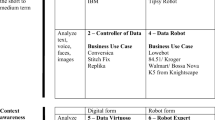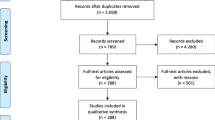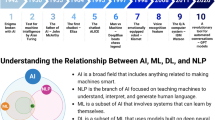Abstract
Over the past four decades Operations Research (OR) has played a key role in solving complex problems in airline planning and operations. Over the past decade Artificial Intelligence (AI) has seen a rapid growth in adoption across a range of industry verticals such as automotive, telecommunications, aerospace, and health care. It has been acknowledged that while adoption of AI in the travel industry has been slow, the potential incremental value is high. This paper discusses the role of AI and a range of applications in travel to support revenue growth and customer satisfaction.
Similar content being viewed by others
References
Bengio, Y., A. Lodi, A. Prouvost. 2020. Machine Learning for Combinatorial Optimization: A Methodological Tour d’Horizon. European Journal of Operational Research, March 12, 2020 (online version, publication forthcoming).
Boehmer, J. 2019. Amadeus ‘Democratizing AI’ for Travel Startups with Open API’s. The Beat, December 06.
BreakingTravelNews. 2019. Robots to guide British Airways passengers through Heathrow. https://www.breakingtravelnews.com/news/article/robots-to-guide-british-airways-through-heathrow/, December 23.
Brownlee, J. 2017. A Gentle Introduction to Concept Drift in Machine Learning. In Machine Learning Algorithms, Machine Learning Mastery. https://machinelearningmastery.com/gentle-introduction-concept-drift-machine-learning/. December 15.
Chui, M., J. Manyika, M. Miremadi, N. Henke, R. Chung, P. Nel, and S. Malhotra. 2018. Notes from the AI Frontier: Applications and Value of Deep Learning, McKinsey & Company, April 2018. https://www.mckinsey.com/featured-insights/artificial-intelligence/notes-from-the-ai-frontier-applications-and-value-of-deep-learning.
Columbus, L. 2019. 10 Ways AI and Machine Learning are Improving Endpoint Security. Forbes, September 25.
Cook, T.M. 1998. SABRE Soars. OR/MS Today (June) 26–31.
Davenport, T., and R. Ronanki. 2018. Artificial Intelligence for the Real World. Harvard Business Review, January–February 2018.
Goasduff, L. 2019. Top Trends on the Gartner Hype Cycle for Artificial Intelligence, 2019. https://www.gartner.com/smarterwithgartner/top-trends-on-the-gartner-hype-cycle-for-artificial-intelligence-2019/, September 12.
Hao, K. 2019a. We Analyzed 16,625 Papers to Figure Out Where AI is Headed Next. MIT Review, January 25.
Hao, K. 2019b. China has Started a Grand Experiment in AI Education. It could Reshape How the World Learns. MIT Technology Review, August 2. https://www.technologyreview.com/s/614057/china-squirrel-has-started-a-grand-experiment-in-ai-education-it-could-reshape-how-the/.
Hur, Y. 2018. Quantum Computing for Airline Problems. In: AGIFORS 58-th Annual Symposium, Tokyo, October 8–12.
IdeaWorks Company.com and Cartrawler. 2019. Cartrawler Worldwide Estimate of Ancillary Revenue for 2019. https://www.cartrawler.com/ct/ancillary-revenue/worldwide-ancillary-revenue-2019.
Khalil, E.B., P. Le Bodic, L. Song, G. Nemhauser, and B. Dilkina. 2016. Learning to Branch in Mixed Integer Programming. Proceedings of the Thirtieth AAAI Conference on Artificial Intelligence, pp. 724–731.
Kothari, A., M. Madireddy, and S. Ramasubramanian. 2016. Discovering Patterns in Traveler Behaviour Using Segmentation. Journal of Revenue and Pricing Management 15: 334–351.
Levesque, H. 2011. The Winograd Schema Challenge. Commonsensereasoning.org.
Lichfield, G. 2020. Inside the race to build the best quantum computer on earth. MIT Review, February 26.
Liu, B., Y. Xia, and P.S. Yu. 2000. Clustering via decision tree construction. In Conference on Information & Knowledge Management, ed. A. Agah, J. Callan, E. Rundensteiner, and S. Gauch. McLean, VA: ACM.
Marques, M. 2018. Top 3 Chatbots that are Changing the Travel Industry. HiJiffy, https://medium.com/hijiffy/top-3-chatbots-that-are-changing-the-travel-industry-d325082c50b8, March 14.
Martinis, J., and S. Boixo. 2019. Quantum Supremacy Using a Programmable Superconducting Processor. Google AI Blog, https://ai.googleblog.com/2019/10/quantum-supremacy-using-programmable.html, October 23.
Musser, G. 2019. Artificial Imagination: How Machines could Learn Creativity and Common Sense, Among Other Human Qualities. Scientific American, pp. 59–63, May.
Nguyen, G., S. Dlugolinsky, M. Bobák, V. Tran, Á. López Garcia, I. Heredia, P. Malik, and L. Hluchý. 2019. Machine Learning and Deep Learning Frameworks and Libraries for Large-Scale Data Mining: A Survey. Artificial Intelligence Review 52: 77–124.
Ratliff, R.M., J. Manjot, and B.R. Guntreddy. 2013. Applied O&D Revenue Opportunity Model for Dependent Demands. AGIFORS Revenue Management Study Group, May, Miami, FL.
Toyoglu, H. 2019. Revenue opportunity model (ROM) expert system. Artificial Intelligence Special Interest Group (AISIG) Newsletter, 1(3).
Turing, A. 1950. Computing Machinery and Intelligence. Mind 49: 433–460.
Vinod, B. 2014. Operations Research: Laying the Foundation for the Future of Airline Technology. Ascend, pp. 64–69.
Vinod, B. 2016. Chatbots in Travel: 4 Things the Industry must Get Right for Success. https://www.sabre.com/insights/chatbots-in-travel-4-things-the-travel-industry-must-get-right/, August 23.
Vinod, B. 2017. The Evolving Paradigm of Interactive Selling Based on Consumer Preferences. In Proceedings of the “21st Century Airlines: Connecting the Dots” by Nawal Taneja, ISBN: 1138093130, September, pp: 207–213.
Vinod, B., R.M. Ratliff, and V. Jayaram. 2018. An Approach to Offer Management: Maximizing Sales With Fare Products And Ancillaries. Journal of Revenue & Pricing Management 17: 91–101.
Acknowledgements
I would like to take this opportunity to thank Ross Darrow, former Sr. Principal in Sabre Research and currently Chief Scientist at Charter and Go, for his thoughtful feedback on this paper and his many contributions toward the Artificial Intelligence Special Interest Group (AISIG) Initiative – townhalls, big pitch presentations, AI training and quarterly newsletters at Sabre. I would also like to thank Paula Lippe, Cuneyd Kaya, Richard Ratliff, Christian Huff, Melvin Woodley, Rajeev Bellubbi and the many individuals who supported the launch of the AISIG initiative.
Author information
Authors and Affiliations
Corresponding author
Additional information
Publisher's Note
Springer Nature remains neutral with regard to jurisdictional claims in published maps and institutional affiliations.
Rights and permissions
About this article
Cite this article
Vinod, B. Artificial Intelligence in travel. J Revenue Pricing Manag 20, 368–375 (2021). https://doi.org/10.1057/s41272-021-00319-w
Received:
Accepted:
Published:
Issue Date:
DOI: https://doi.org/10.1057/s41272-021-00319-w




